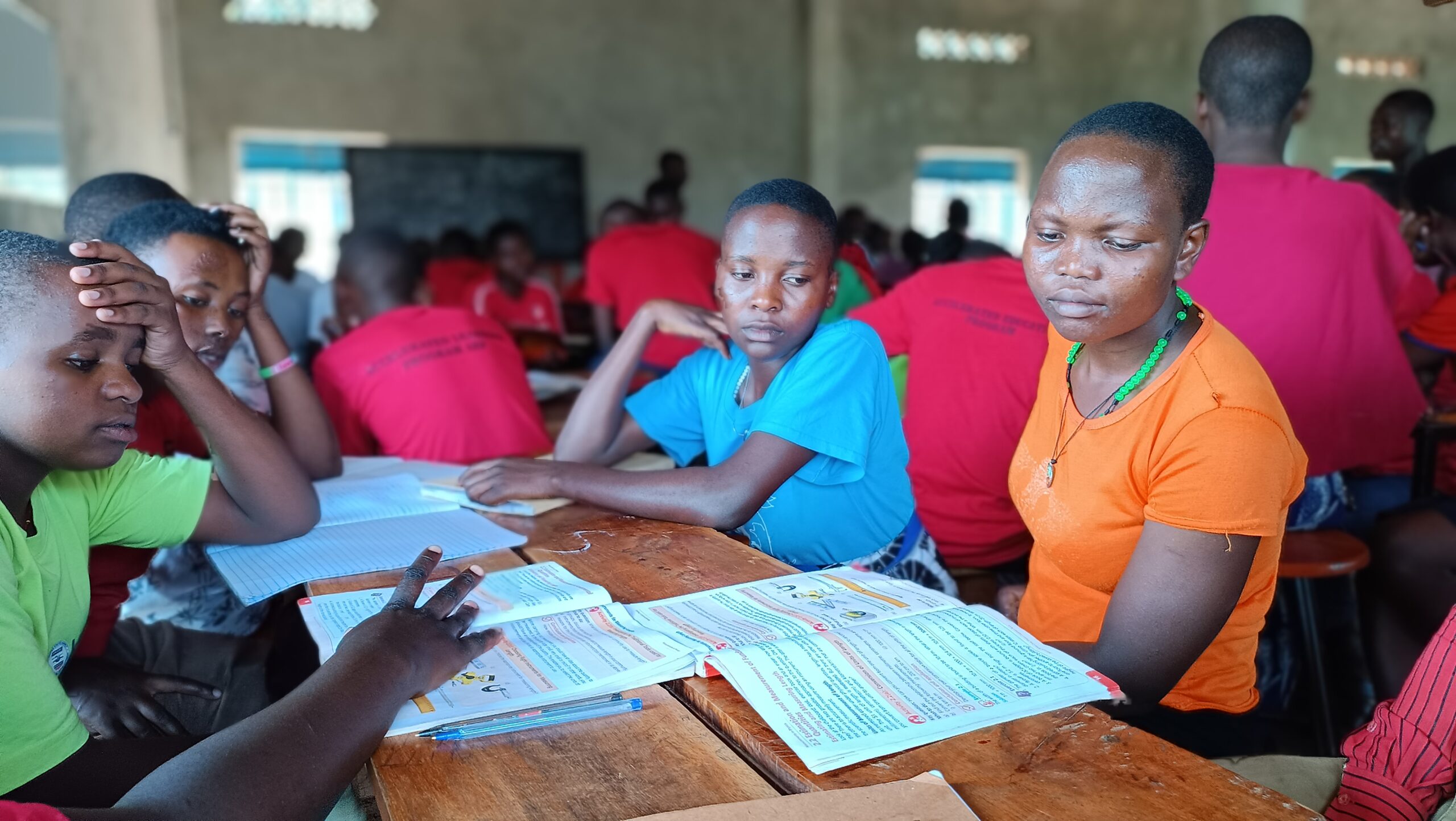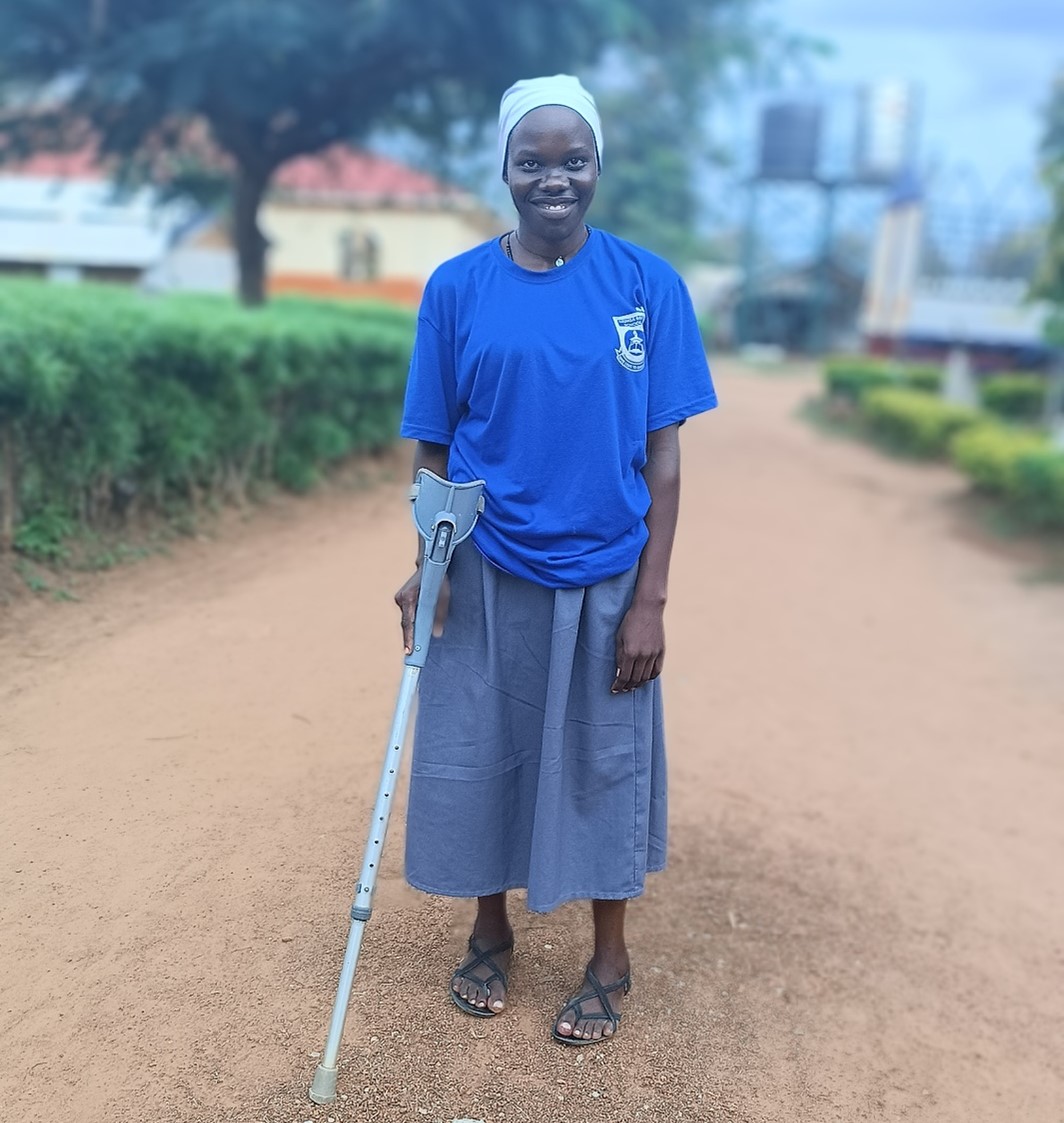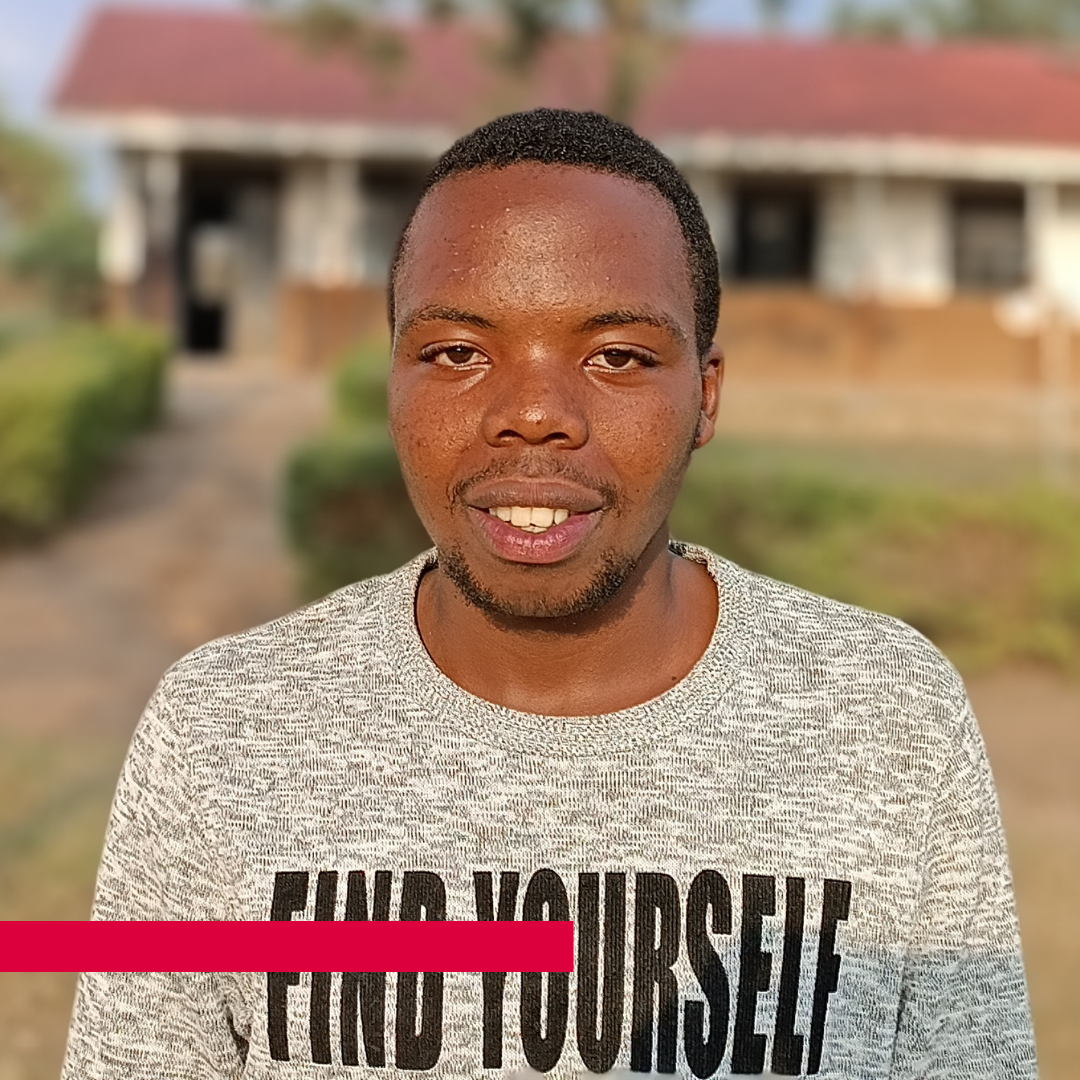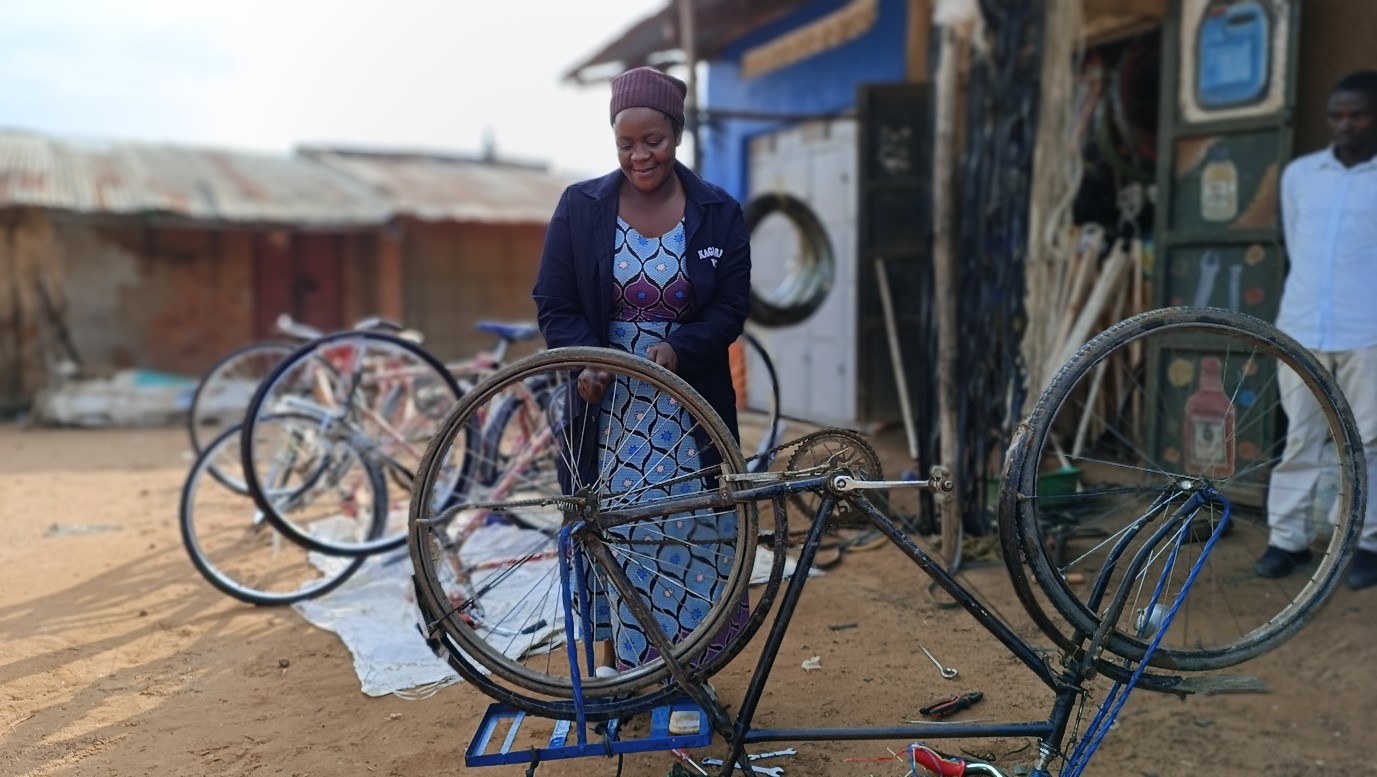Pathways to dignified work and brighter futures.

What’s the project?
Bridge: From Secondary Education and Skills Development to Job Opportunities for Refugee and Host Community Youth in Uganda project, implemented by War Child Canada in partnership with the Mastercard Foundation, aims to address youth unemployment in Uganda’s refugee-hosting districts by increasing access to education and market-relevant skills. Launched in 2021, the initiative supports both refugees and host community youth—especially adolescent girls and young women—through Accelerated Education Programs (AEP), vocational training, and tertiary scholarships.
The project has reached over 31,000 youth, with 65% female participation and 64% from refugee communities. Over 4,600 youth have transitioned into employment or self-employment, including through apprenticeships and business incubation. The project also focuses on inclusive and safe learning environments, constructing Temporary Learning Spaces and improving Water and Sanitation (WASH) facilities, while strengthening community involvement through school boards, education committees, and Mother-to-Mother support groups which allow for young mothers to continue their education.
In line with the Young Africa Works strategy, the Bridge Project is creating real pathways to dignified work and a brighter future for young people in some of the most underserved communities in Uganda.
The areas in which we work need to manage the influx of refugee arrivals, address gender disparities in participation, and ensure consistent funding and resource allocation to meet the high demand for vocational training slots.
War Child Canada’s collaboration with local and international partners, including the Mastercard Foundation, continues to strengthen this transformative project, promising ongoing positive impacts on Uganda’s youth.

Reclaiming formal education despite extraordinary challenges
Janelle, a 23-year-old refugee from South Sudan living in Uganda’s Yumbe district, is reclaiming her dream of formal education despite extraordinary challenges. Forced to flee conflict in 2016, Janelle endured displacement, disability caused by a rare illness, and the loss of financial and emotional support when her mother returned to South Sudan. Her determination led her to War Child’s Bridge Project, in partnership with the Mastercard Foundation, which awarded her one of 537 scholarships to continue her secondary education. Now studying at Aringa Secondary School, Janelle is one of 591 young people with disabilities supported through the program, which prioritizes inclusion and opportunity for marginalized young people. Although her disability redirected her career goals from nursing to nutrition, Janelle remains focused on building a meaningful life and helping others. Her story highlights the critical role of education in restoring dignity, hope, and economic potential for refugee youth. The Bridge Project continues to transform futures by equipping young people like Janelle with the tools to overcome adversity and pursue a brighter future.

Bright
Accelerated Learning Program


Vocational skills, training, and opportunity can reshape lives
Denise, a refugee from the Democratic Republic of Congo, found her purpose and income in an unexpected place—bicycle repair. After relocating to Uganda in 2019 with her three children, Denise explored various female-centric trades but only felt truly fulfilled when she began learning to fix bicycles. Despite initial skepticism, her skills and determination quickly earned the trust of her community. Through War Child’s apprenticeship program through BRIDGE Project, Denise trained in bicycle mechanics, expanding her expertise and gaining the confidence to grow her business. She now earns a steady income, supporting her family and building toward her goal of opening a spare parts shop. Denise’s story highlights how non-traditional vocational skills, when supported with practical training and opportunity, can empower women and reshape livelihoods in refugee communities.

